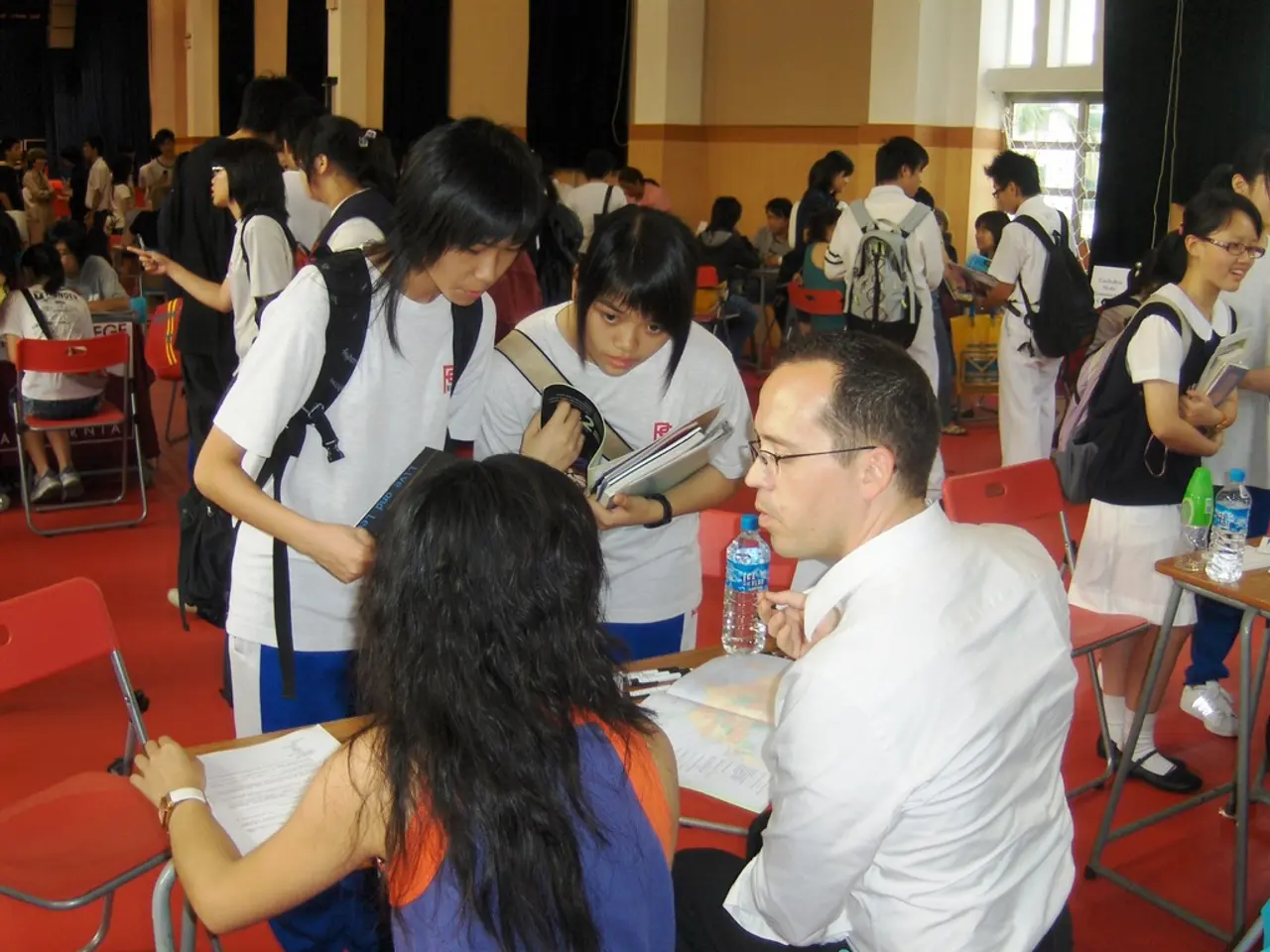Multicultural student environment expanded to accommodate multicultural teachers' presence
In a recent study titled "Educators with Migrations Background in Germany," the experiences and integration of educators with migrant backgrounds were explored. The research aimed to fill a gap in understanding the educational biographies, professional self-understanding, and school integration of these teachers.
The study revealed that around 30% of teachers with migrant backgrounds surveyed had experienced discrimination or disadvantage during their own school days. This finding underscores the need for improved integration of migrants in German schools, as currently, only one to two percent of all educators have a migration background.
Despite facing discrimination, the majority of migrant teachers, around 70%, feel very comfortable in their profession and do not wish to change it. Many of these teachers see themselves in a special mediating or role model role for students with a migration background. However, this role can be challenging, with many teachers struggling with their resulting mentoring and role model responsibilities.
Cem Özdemir, a panelist in the discussion, advocated for political steering but opposed coercive measures to increase the number of teachers with a migration background. On the other hand, Christine Lüders, head of the Federal Anti-Discrimination Agency, proposed a concrete solution to structural discrimination in teachers' and classrooms: She wants to advocate for complaint offices in the ministries of education.
The study also highlighted a second major contradiction: Although teachers with a migration background stand for lived linguistic diversity, they rarely use their mother tongue in the classroom. Yasemin Karakaşoğlu, professor of intercultural education at the University of Bremen, warned against taking on a "social worker role" at schools, while Luigi Giunta, an Italian-rooted studies councilor from Düsseldorf, criticized the use of teachers with a migration background as "cultural translators."
The low number of teachers with a migration background in German schools is due to several factors, including perceived limited career advancement and low prestige of the profession, experiences of discrimination and racism, and lack of role models during their own schooling. Saraya Gomis, a comprehensive school teacher from Hannover, described her training as "the worst time of her life" due to discrimination.
Musa Özdemir, a main and lower secondary school teacher in Berlin, shifted the focus away from the school to the challenges for society as a whole, stating that the future is the multicultural society. In response to the federal government's inclusion of the demand for more educators with migrant backgrounds in its new integration program, Karakaşoğlu proposed advertising teacher positions specifically for certain language groups needed at a school, rather than suggesting a better mix of schools with high and low migrant shares.
Overall, the study sheds light on the complexities and challenges faced by teachers with a migration background in Germany, while also highlighting their valuable contributions to the education system. It is hoped that the findings will inform policies and practices aimed at improving the integration and support of these educators, ultimately benefiting students with a migration background.
Read also:
- visionary women of WearCheck spearheading technological advancements and catalyzing transformations
- Recognition of Exceptional Patient Care: Top Staff Honored by Medical Center Board
- A continuous command instructing an entity to halts all actions, repeated numerous times.
- Oxidative Stress in Sperm Abnormalities: Impact of Reactive Oxygen Species (ROS) on Sperm Harm








